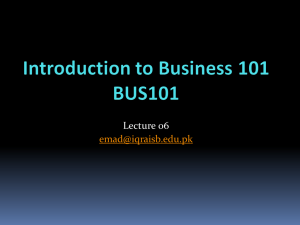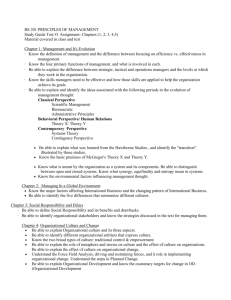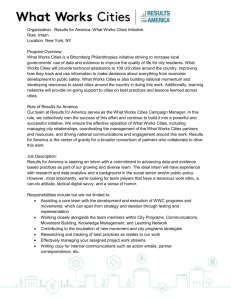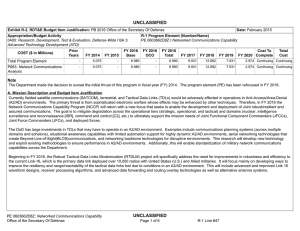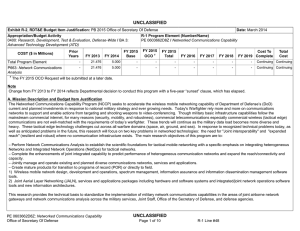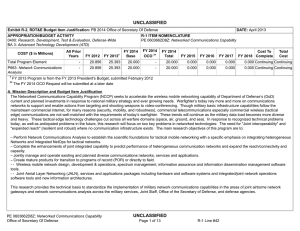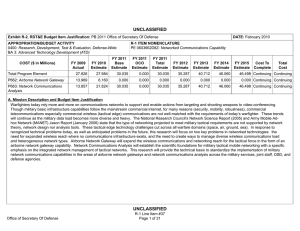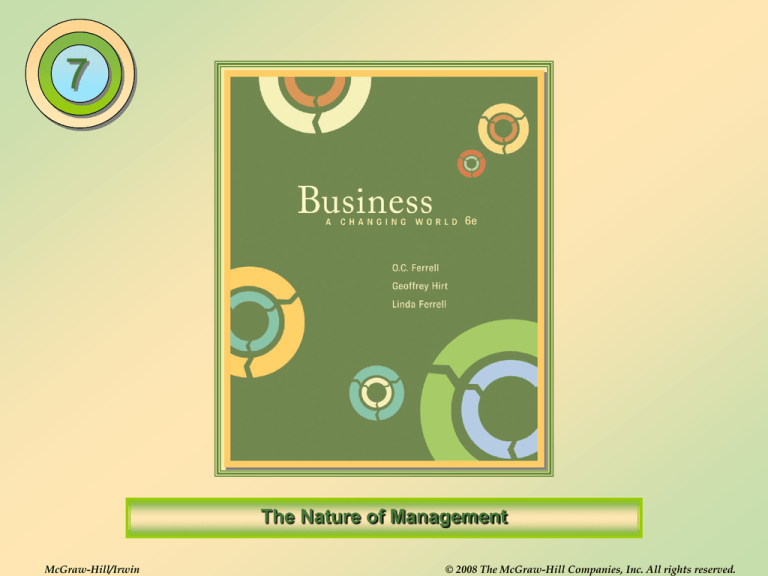
7
The Nature of Management
McGraw-Hill/Irwin
© 2008 The McGraw-Hill Companies, Inc. All rights reserved.
7-2
Management
• A process designed to achieve an
organization’s objectives by using its
resources effectively and efficiently
in a changing environment
7-3
Managers
• Managers make decisions about the use
of resources and are concerned with:
– Planning
– Organizing
– Leading
– Controlling the organization’s activities
7-4
The Functions of Management
7-5
Where Planning Starts
• Objectives
– The ends or results desired by the
organization and are derived from the
organization’s mission
• Mission
– The statement of an organization’s
fundamental purpose and basic philosophy
7-6
Types of Plans
• Strategic plans
– Establish long-range objectives and overall
strategy
• Tactical plans
– Designed to implement strategic objectives
(usually one year or less)
• Operational plans
– Specify actions to achieve tactical plans (very
short-term)
7-7
Crisis Management
• Contingency Planning
– Requires that managers plan for “when”
rather than “if” a disaster occurs
7-8
Organizing
• Helps create synergy
• Establishes lines of authority
• Improves communication
• Helps avoid duplication of resources
• Can improve competitiveness by speeding
up decision making
7-9
Staffing
• Managers must ensure that the organization has
enough employees with appropriate skills to do
the work.
• Managers must also determine:
– What skills are needed for specific jobs
– How to motivate and train employees to do their
assigned jobs
– How much to pay employees
– What benefits to provide
– How to prepare employees for higher-level jobs in the
firm at a later date
7-10
Directing
• Motivating and leading employees to
achieve organizational objectives
– Recognition and appreciation are often the
best motivators for employees.
7-11
Controlling
•
Control involves five activities:
1. Measuring performance
2. Comparing present performance with
standards or objectives
3. Identifying deviations from the standards
4. Investigating the causes of deviations, and
taking corrective action when necessary
5. Correcting activities to keep the
organization on course
7-12
The Levels of Management
7-13
The Ten Highest Paid CEOs
7-14
Importance of Management Functions
to Managers in Each Level
7-15
Workforce Diversity
7-16
Areas of Management
•
•
•
•
•
Financial management
Production and operations management
Human resources management
Marketing management
Administrative management
Did You Know?
Women represent only 15.7 percent of corporate
officers and just 5.2 percent of all top earners.
7-17
Skills Needed by Managers
•
•
•
•
•
Leadership skills
Technical expertise
Conceptual skills
Analytical skills
Human relations skills
7-18
Three Basic Styles of
Leadership
• Democratic
• Autocratic
• Free-rein
7-19
Seven Tips for
Successful Leadership
1.
2.
3.
4.
5.
6.
7.
Build effective and responsive interpersonal
relationships.
Communicate effectively—in person, print, e-mail, etc.
Build the team and enable employees to collaborate
effectively.
Understand the financial aspects of the business.
Know how to create an environment in which people
experience positive morale and recognition.
Lead by example.
Help people grow and develop.
Source: Susan M. Heathfield, “Seven Tips About Successful Management,” What You Need to Know About.com (n.d.),
http://humanresources.about.com/cs/managementissues/qt/mgmtsuccess.htm (accessed October 31, 2006).
7-20
Where Do Managers Come
From?
• Good managers are made, not born:
– Promoting employees from within
– Hiring managers from other organizations
– Hiring managers graduating from colleges
and universities
7-21
Steps in the Decision Making
Process
7-22
The Reality of Management
•
There are only two basic activities of
management:
1. Figuring out what to do despite uncertainty,
great diversity, and an enormous amount of
potentially relevant information
2. Getting things done through a large and
diverse set of people despite having little
direct control over most of them
7-23
The Median Annual Salaries for
Management Positions
Computer/IT managers
Marketing managers
Financial managers
Human resources/labor managers
Production/operations managers
Medical/health services managers
Administrative managers
$85,240
$78,250
$73,340
$67,710
$67,320
$61,370
$52,500
7-24
Solve the Dilemma
1. Evaluate Infinity’s current situation and analyze
its strengths and weaknesses.
2. Evaluate the opportunities for Infinity, including
using its current strategy and propose
alternative strategies.
3. Suggest a plan for Infinity to compete
successfully over the next ten years.
7-25
Explore Your Career Options
• In which types of industries
or sectors are managers the
most likely to be hired?
7-26
Additional Discussion Questions
and Exercises
1. What is the difference between strategic plans
and tactical plans?
2. Which of the five functions of management is
most closely concerned with evaluation?
3. Which level of management is most likely to
need technical skills?
4. Describe the individuals with whom managers
are involved in networking.
– What is the value of networking for managers?
7-27
Chapter 7 Quiz
1.
Which of the following skills involves the ability to think
creatively, to think in abstract parts, and to see how
terms fit together to form a whole?
a.
b.
c.
d.
2.
analytical skills
conceptual skills
human relation skills
technical skills
Which describes free-rein leaders?
a.
b.
c.
d.
Leaders make all decisions and tell employees what to do and
how to do it
Leaders allow employees to get involved in decisions.
Leaders allow top management to make all decisions and tell
employees what to do and how to do it.
Leaders let employees work without much interference.
7-28
Chapter 7 Quiz
3.
An agenda is most closely associated with
a.
b.
c.
d.
4.
networking.
technical expertise.
a calendar.
financial resources.
The ability to deal with people is known as (an)
a.
b.
c.
d.
analytical skill.
conceptual skill.
human relation skill.
technical skill.
7-29
Multiple Choice Questions
about the Video
1.
GM spends about _______ per car on health care and
pensions
a.
b.
c.
d.
2.
$100
$10,000
$1,000
$2,500
Which of the following is NOT a measure that GM has
taken to reduce costs?
a.
b.
c.
d.
Layoffs
Benefit reduction
Board of Director pay cuts
Pension increases
7-30

